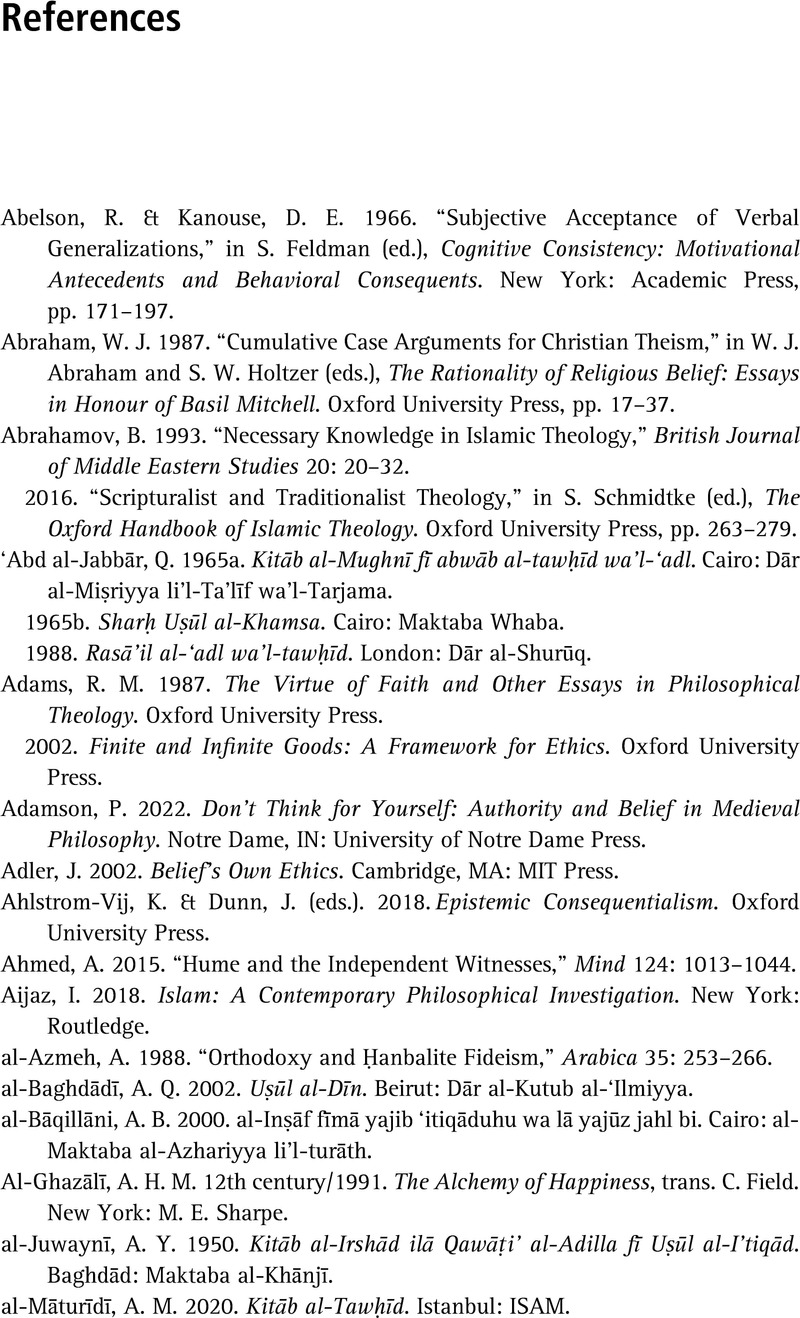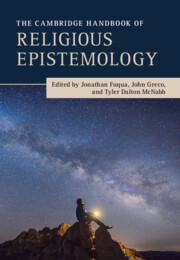Book contents
References
Published online by Cambridge University Press: 24 August 2023
Summary

- Type
- Chapter
- Information
- The Cambridge Handbook of Religious Epistemology , pp. 305 - 334Publisher: Cambridge University PressPrint publication year: 2023



